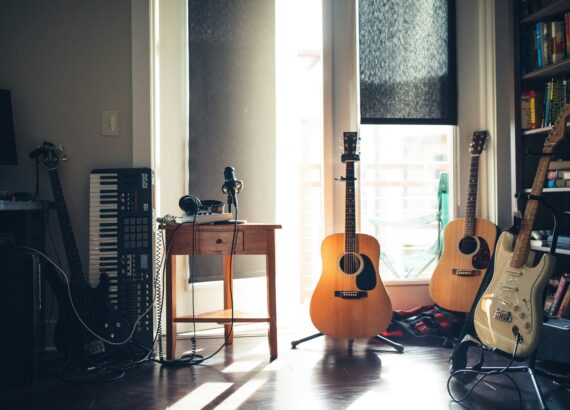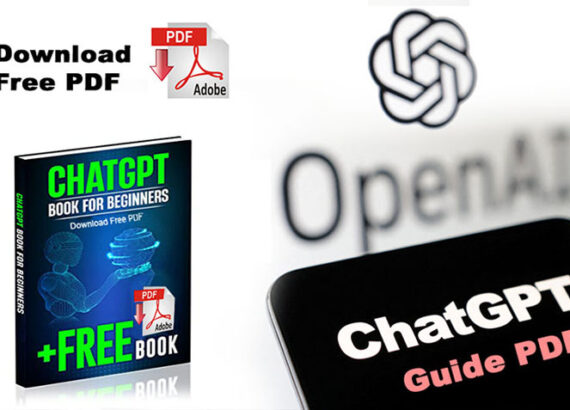How to Establishing Your Identity

Step-by-Step Guide How to Establishing Your Identity
Building a strong online presence is essential for musicians in today’s digital age. With the rise of streaming platforms, social media, and online communities, connecting with fans and promoting your music has never been easier. In this step-by-step guide, we will explore the key strategies and techniques to help you establish a powerful online presence as a musician. From defining your unique brand identity to creating a professional website, utilizing social media platforms, and leveraging email marketing, we will provide you with a comprehensive roadmap to effectively navigate the online landscape and attract a dedicated fanbase. Additionally, we will delve into the importance of collaborations, tracking metrics, and continuously improving your online presence. So, whether you’re a budding artist or an established musician looking to enhance your digital footprint, this guide will equip you with the knowledge and tools to thrive in the online music world. Boost your career and reach new heights in the music industry by harnessing the potential of the internet.
1. Understanding the Importance of an Online Presence for Musicians
Why an Online Presence Matters
As a musician, having an online presence is no longer just an option, it’s a necessity. The digital world has revolutionized the way we discover and consume music, and if you’re not online, you’re missing out on a world of opportunities. Your online presence is like a virtual stage where you can showcase your talent and connect with fans from all corners of the globe.
Benefits of Having a Strong Online Presence
Having a strong online presence can do wonders for your music career. It allows you to reach a wider audience, build a dedicated fan base, and increase your chances of getting noticed by industry professionals. It also gives you the power to control your narrative and tell your story in your unique way. Plus, let’s not forget the convenience factor – with an online presence, people can listen to your music anytime, anywhere, without having to wait for your next gig.

2. Establishing Your Brand Identity as a Musician
Defining Your Unique Brand
It’s your essence, your vibe, and your musical identity all rolled into one. Take some time to figure out what makes you unique and what message you want to convey through your music. Are you a quirky ukulele player with a knack for storytelling? Or maybe you’re the smooth jazz guitarist who can make anyone’s worries melt away.
Creating a Compelling Bio and Artist Statement
Your bio and artist statement are like your musical résumé – they give people a glimpse into who you are as an artist. But here’s the thing: no one wants to read a lengthy, corporate-sounding bio that puts them to sleep. Keep it concise, engaging, and true to your brand. Tell your story in a way that makes people want to grab their headphones and dive into your music.
Designing a Memorable Logo and Visual Identity
A solid visual identity can make a lasting impression on your fans. Invest some time (and maybe a few dollars) in creating a memorable logo and visual identity that aligns with your brand. Whether it’s a sleek minimalist design or a colorful explosion of creativity, make sure it’s something that reflects your music and catches the eye of anyone scrolling through their Instagram feed.
Get up to 70% Discount on Amazon Electronic Products
3. Creating a Professional Website for Your Music
Choosing the Right Website Platform
When it comes to building a website for your music, there are plenty of options out there. Consider factors like ease of use, customization options, and cost when choosing a website platform. Platforms like Wix, WordPress, and Squarespace offer user-friendly templates specifically designed for musicians, making it easy for you to showcase your music and connect with your audience.
Designing an Attractive and User-Friendly Website
Your website should be a reflection of your music – visually appealing and easy to navigate. Use high-quality photos, videos, and audio samples to engage visitors and give them a taste of your sound. Keep the design clean and clutter-free, and make sure it’s mobile-friendly because let’s face it, most people browse the web on their phones nowadays.
Optimizing Your Website for Search Engines
What good is a website if no one can find it? Optimize your website for search engines by using relevant keywords in your content, including meta tags, and ensuring your website loads quickly. Also, don’t forget to link your social media accounts, so visitors can easily connect with you on other platforms.
4. Utilizing Social Media Platforms to Connect with Fans
Selecting the Right Social Media Channels
There’s no shortage of social media platforms these days, but that doesn’t mean you have to be on all of them. Choose the platforms that align with your target audience and focus on building a strong presence there. Facebook, Instagram, Twitter, and YouTube are popular for musicians but feel free to experiment and see which platforms work best for you.
Crafting Engaging and Consistent Content
Now that you’re on social media, it’s time to keep the party going. Craft engaging and consistent content that resonates with your fans. Share behind-the-scenes glimpses into your creative process, create lyric videos, or even host live-streaming concerts. The key is to be authentic and show your fans that there’s a real person behind the music.
Engaging with Your Fans and Building Relationships
Social media is not a one-way street. Take the time to engage with your fans, respond to their comments and messages, and show your appreciation for their support. Building relationships with your fans is essential for creating a loyal fan base and nurturing a community around your music.
Be patient, stay true to yourself, and have fun along the way. After all, music is all about connecting with others and bringing a little joy into the world – and the online world is the perfect stage for that.
5. Harnessing the Power of Video and Streaming Platforms
Creating and Sharing High-Quality Music Videos
In today’s digital age, music videos are more important than ever for building a strong online presence as a musician. They not only showcase your music but also give fans a visual representation of your artistry. To create high-quality music videos, invest in good equipment, find a creative concept that aligns with your music, and collaborate with talented videographers or editors. Once your videos are ready, share them across various platforms like YouTube, Vimeo, and social media to reach a wider audience.
Effectively Using Streaming Platforms like Spotify
Streaming platforms like Spotify have transformed the music industry, allowing musicians to reach millions of listeners worldwide. To maximize your presence on platforms like Spotify, create a captivating artist profile with professional photos and an engaging bio. Regularly release new music and promote it through playlists, social media, and collaborations with other artists. Engage with your fans by responding to comments and messages, and utilize Spotify for Artists to gain valuable insights about your audience and track your progress.
Live Streaming and Virtual Performances
In the age of social distancing, live streaming, and virtual performances have become essential for musicians to connect with their audience. Platforms like Facebook Live, Instagram Live, and Twitch offer opportunities to perform live from the comfort of your own home. Engage with your fans, take song requests, and create a unique experience that makes viewers feel like they’re attending a live concert. Don’t forget to promote your live streams in advance through social media and email newsletters to maximize attendance.

6. Building an Engaged Fanbase through Email Marketing
Building a Strong Email List
Email marketing remains one of the most effective ways to build a loyal fanbase and keep them engaged. Start by creating a simple signup form on your website or social media profiles, offering incentives like exclusive content or early access to new releases. Encourage fans to sign up through your live performances and include a call-to-action in your music videos. Regularly communicate with your email list by sending updates about new music, upcoming shows, and behind-the-scenes content.
Crafting Compelling Email Campaigns
When crafting email campaigns, keep your messages concise, engaging, and personal. Use catchy subject lines that grab attention and entice fans to open your emails. Provide value by sharing exclusive content, such as unreleased songs or behind-the-scenes footage. Don’t be afraid to show your personality and inject humor into your emails, as it helps to build a stronger connection with your fans. Experiment with different types of emails, such as newsletters, tour announcements, and special offers, to keep your audience excited.
Personalization and Segmentation Strategies
Segmenting your email list based on fans’ preferences and engagement levels allows you to personalize your messages and deliver content that resonates with each group. Use analytics tools to track open rates, click-through rates, and conversion rates to identify your most engaged fans. Tailor your emails to match their interests and offer exclusive perks or discounts that make them feel valued. Additionally, consider sending targeted emails to fans in specific geographic locations to promote upcoming shows or tours.
Get up to 70% Discount on Amazon Electronic Products
7. Collaborating with Influencers and Other Musicians Online
Identifying and Approaching Potential Collaborators
Collaborating with influencers and other musicians can significantly expand your reach and introduce your music to new audiences. Identify influencers who align with your style and genre by researching their social media presence and engagement. Approach potential collaborators with a clear proposal that outlines the mutual benefits and shows that you’ve taken the time to understand their work. Be genuine, respectful, and open to creative ideas that align with both parties’ visions.
Creating Win-Win Partnerships
When collaborating with influencers or other musicians, it’s crucial to create win-win partnerships that benefit all parties involved. Clearly define the goals and expectations of the collaboration and ensure that both parties have something to gain, whether it’s exposure, increased followers, or new music opportunities. Collaborative projects can include features on each other’s tracks, joint live performances, or promotional campaigns. Remember, a successful collaboration goes beyond just the project itself; it’s about building long-term relationships.
Maximizing Exposure through Collaborative Projects
Collaborative projects can lead to increased exposure, especially when both parties actively promote the collaboration. Share teasers, behind-the-scenes footage, and exclusive content across your social media platforms. Collaborate on marketing efforts, such as cross-promoting on websites, shared playlists, or joint interviews. Encourage your fans to support your collaborators and vice versa. By leveraging each other’s fan bases, you can gain new followers and create a buzz that extends beyond your usual reach.

8. Tracking, Analyzing, and Improving Your Online Presence
Setting Key Metrics and Goals
To continuously improve your online presence, it’s essential to set specific metrics and goals. Determine what you want to achieve, whether it’s increasing social media followers, generating more streams, or booking higher-profile gigs. Set realistic targets and track your progress using analytics tools. Regularly review your performance and adjust your strategies accordingly to focus on areas that need improvement or capitalize on what’s working well.
Utilizing Analytics Tools for Insights
Analytics tools like Google Analytics, social media insights, and streaming platform data provide valuable insights into your audience, their behaviors, and the effectiveness of your online efforts. Monitor key metrics such as website traffic, engagement rates, and follower growth. Analyze which platforms drive the most traffic and conversions, and tailor your content and promotional efforts accordingly. Use these insights to better understand your audience and optimize your online presence.
Optimizing and Iterating Your Online Strategy
Building a strong online presence is an ongoing process, and it’s essential to continuously optimize and iterate your strategies. Experiment with different types of content, posting frequencies, and promotional tactics to find what resonates best with your audience. Stay up-to-date with industry trends and evolving digital platforms to ensure you’re utilizing the most effective tools and techniques to reach your target audience.
Conclusion
In conclusion, building a strong online presence as a musician is no longer a choice but a necessity in today’s digital landscape. By following the step-by-step guide outlined above, you can establish a compelling brand, create a professional website, engage with fans on social media, leverage video, and streaming platforms, harness the power of email marketing, collaborate with influencers and other musicians, and continuously track and improve your online presence. Remember, consistency, authenticity, and dedication are key factors in building a thriving online presence. So, take the knowledge and tools provided in this guide, adapt them to your unique style, and embark on your journey to connect with fans, promote your music, and achieve success in the digital realm.
Get up to 70% Discount on Amazon Electronic Products

FAQ
1. How important is it for musicians to have an online presence?
Having an online presence is crucial for musicians in today’s digital age. It allows you to reach a global audience, connect directly with fans, promote your music, and establish your brand identity. Without an online presence, it can be challenging to gain visibility, build a fanbase, and advance your music career in a highly competitive industry.
2. Do I need to be active on social media?
While it’s important to have a presence on social media, you don’t need to be active on every platform. It’s more effective to choose platforms that align with your target audience and music genre. Focus on maintaining a consistent and engaging presence on a select few platforms rather than spreading yourself too thin across multiple platforms.
3. How often should I update my website?
Regularly updating your website is crucial to keep your fans engaged and showcase your latest work. Aim to update your website with new content, such as upcoming shows, new music releases, blog posts, or behind-the-scenes content, at least once a month. This keeps your website fresh and gives fans a reason to keep coming back.
4. How can I measure the success of my online presence?
There are several ways to measure the success of your online presence. Utilize analytics tools provided by social media platforms, website builders, and email marketing services to track metrics like engagement, reach, website traffic, email open rates, and conversions. These metrics will help you understand what strategies are working well and where improvements can be made to optimize your online presence.
Thank you for reading 🙂











